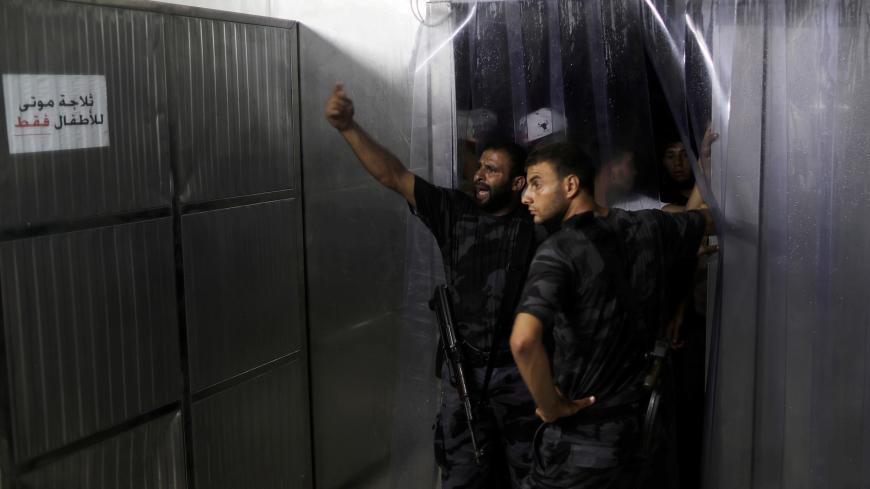It has now become routine: Almost every weekend, the Code Red alert is sounded in the Gaza envelope localities in the south of Israel, followed by what the Israel Defense Forces (IDF) spokesman likes to call "airstrikes on terror targets." This rather vague term is designed to give the sense that an important airstrike assault has taken place; in truth, however, it describes empty reprisals without any deterrent effect. In turn, this is designed to placate Israel's public opinion. These "strikes" cost the Israeli taxpayer a lot of money but provide zero efficacy. Most of the IDF responses in recent months have been against unmanned targets such as abandoned Hamas observation posts and unimportant structures. Sometimes the Israel air force drops bombs on empty, open territory, causing loud noise that is also heard in the Gaza Envelope localities.
On the evening of Sept. 6, five rockets were fired from Gaza to Israeli territory following the killing of two Palestinian demonstrators earlier that day in the fence demonstrations. The Hamas military wing blamed Israel and said Israel "bears responsibility for the ramifications of the crime." However, it seems the relatively weak Hamas response was mainly intended to appease Palestinian public opinion considering the harsh criticism absorbed by the movement's leaders for its policy of restraint vis-a-vis Israel. In a conversation with Al-Monitor, an Israeli defense source speaking on condition of anonymity assesses that it is possible the military wing was just going through the motions and that's why the rocket fire was directed over open territory. According to our source, when Hamas gets hit — two deaths on the fence, in this case — and the heads of the military wing really want to retaliate, "Their response is much stronger, such as shooting long-range missiles that are much more precise."



